Signal Transmission in Biology
Signal transmission is an essential process in biology that involves the communication of information within and between cells. This process allows organisms to respond to changes in their environment and maintain internal balance, a concept known as homeostasis. Signal transmission often involves the interaction of signaling molecules, receptors, and intracellular signaling pathways.
Types of Signal Transmission
There are several types of signal transmission in biology, including:
- Endocrine Signaling: Involves the release of hormones into the bloodstream to act on distant target cells.
- Paracrine Signaling: Involves the release of signaling molecules to act on nearby target cells.
- Autocrine Signaling: Involves cells responding to signaling molecules that they themselves release.
- Neuronal Signaling: Involves the transmission of electrical signals along nerve cells and the release of neurotransmitters at synapses.
Molecular Mechanisms of Signal Transmission
Signal transmission typically involves the following molecular mechanisms:
- Signal Reception: Cells detect signaling molecules through specific receptors, which can be located on the cell membrane or within the cell.
- Transduction: Upon receptor binding, the signal is converted into a form that can cause a cellular response, often through a series of intracellular signaling events.
- Response: The transduced signal ultimately leads to a specific cellular response, such as changes in gene expression, metabolism, or cell movement.
Examples of Signal Transmission
Examples of signal transmission in biology include:
- Insulin Signaling: The release of insulin in response to high blood sugar levels, leading to the uptake of glucose by cells.
- Neurotransmission: The release of neurotransmitters at synapses to transmit signals between nerve cells.
- Growth Factor Signaling: The activation of growth factor receptors to regulate cell growth and division.
Study Guide for Signal Transmission
To understand signal transmission in biology, it's important to focus on the following key concepts:
- Identify the different types of signal transmission and their respective mechanisms.
- Understand the role of signaling molecules, receptors, and intracellular signaling pathways in signal transmission.
- Explore specific examples of signal transmission in physiological processes, such as hormone regulation and neuronal signaling.
- Examine how disruptions in signal transmission can lead to diseases, such as diabetes and cancer.
- Consider the potential for therapeutic interventions targeting signal transmission pathways.
By mastering the principles of signal transmission, you can gain insight into the intricate ways in which cells communicate and coordinate their activities, ultimately contributing to the functioning of living organisms.
.◂Biology Worksheets and Study Guides High School. DNA technology/genetic engineering
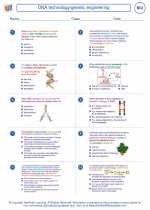
 Worksheet/Answer key
Worksheet/Answer key
 Worksheet/Answer key
Worksheet/Answer key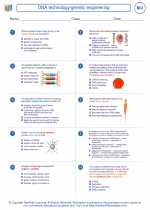
 Worksheet/Answer key
Worksheet/Answer key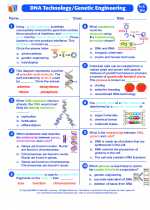
 Vocabulary/Answer key
Vocabulary/Answer key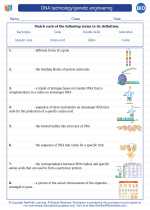
 Vocabulary/Answer key
Vocabulary/Answer key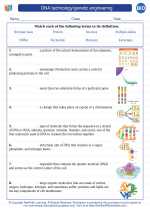
 Vocabulary/Answer key
Vocabulary/Answer key
